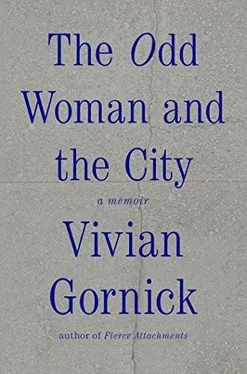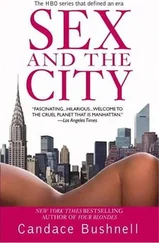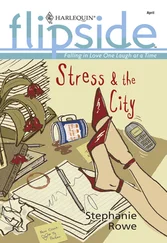“When I got divorced,” she said, “I had to sell the house in Westchester. A couple in the business of importing Chinese furniture and art objects bought the house and began moving things in a week before I was to leave. One night I went down into the basement and began looking through some of their crates. I found a pair of beautiful porcelain vases. On impulse, I took one. I thought, They’ve got everything, I’ve got nothing, why shouldn’t I? When I moved, I took the vase with me. A week later the husband called and said this funny thing had happened, one of this pair of vases had disappeared, did I know anything about it. No, I said, sounding as bemused as he, I didn’t know anything about it, I’d never even seen the vases. I felt awful then. But I didn’t know what to do. I put the vase in a closet and never looked at it again. Ten years passed. Then I began thinking about the vase. Soon the thought of the vase began to obsess me. Finally, this past year I couldn’t stand it anymore. I packed up the vase as carefully as I could, and sent it back to them. And I wrote a separate letter, saying I didn’t know what had possessed me, why I had taken this thing that belonged to them, and I wasn’t asking for forgiveness, but here it was back. A few weeks later the wife called me. She said she’d gotten this strange letter from me, she didn’t know what I was talking about, and then this package came, and inside the package was about a thousand shards of something or other. What on earth was it that I had taken and was now sending back?”
* * *
Leonard and I are sitting in his living room, me in the tall gray velvet chair, he on the brown canvas couch.
“The other day,” I tell him, “I was accused of being judgmental. What a laugh, I thought. You should have known me ten years ago. But you know? I’m tired of apologizing for being judgmental. Why shouldn’t I be judgmental? I like being judgmental. Judgmental is reassuring. Absolutes. Certainties. How I have loved them! I want them back again. Can’t I have them back again?”
Leonard laughs and drums his fingers restlessly along the wooden armrest of his beautiful couch.
“Everyone used to seem so grown up,” I say. “Nobody does anymore. Look at us. Forty, fifty years ago we would have been our parents. Who are we now?”
Leonard gets up and crosses the room to a closed cabinet, opens it, and takes out a torn package of cigarettes. My eyes follow him in surprise. “What are you doing,” I say, “you’ve stopped smoking.” He shrugs and extracts a cigarette from the package.
“They passed,” Leonard says, “that’s all. Fifty years ago you entered a closet marked ‘marriage.’ In the closet was a double set of clothes, so stiff they could stand up by themselves. A woman stepped into a dress called ‘wife’ and the man stepped into a suit called ‘husband.’ And that was it. They disappeared inside the clothes. Today, we don’t pass. We’re standing here naked. That’s all.”
He strikes a match and holds it to his cigarette.
“I’m not the right person for this life,” I say.
“Who is?” he says, exhaling in my direction.
* * *
At ten in the morning, two old women are walking ahead of me on West Twenty-Third Street, one wearing a pink nylon sweater, the other a blue. “Did you hear?” the woman in pink says. “The pope appealed to capitalism to be kind to the poor of the world.” The woman in blue responds, “What did capitalism say?” As we’re crossing Seventh Avenue, the woman in pink shrugs. “So far it’s quiet.”
At noon, a man at a grocery counter stands peering at the change in his hand. “You gave me $8.06,” he says to the young woman behind the cash register. “I don’t think that’s right.” She looks at the coins and says, “You’re right. It shoulda been $8.60,” and gives the man the correct change. He continues to stare at his open palm. “You put the six and the zero in the wrong place,” he says. “It shoulda been the other way around.” Now it’s the woman who stares. When at last the man turns away, I shake my head sympathetically. “What I put up with all day long,” she says with a sigh as I pile my purchases on the counter. “Would you believe this? A guy comes up to the counter with an item. It’s marked wrong. I can see right away, it’s the wrong amount. I tell him, ‘Listen, that’s the wrong price. Believe me, I know the prices, I been working in the store two years.’ He says to me, ‘That’s nothing to be proud of,’ and he marches out.”
At three in the afternoon, a distinguished-looking couple is standing under the awning of the posh Regency Hotel on Park Avenue. The man has iron-gray hair and regular features and is wearing an expensive overcoat. The woman is alcoholic thin, has blond, marcelled hair, and is wearing mink. She looks up at him as I pass them, and her face lights up. “It’s been a wonderful afternoon,” she says. The man embraces her warmly and nods directly into her face. The scene excites my own gratitude: how delicious to see people of the moneyed classes acting with simple humanity! Later I run into Sarah, a tired socialist of my acquaintance, and I tell her about the couple on Park Avenue. She listens with her customary Marxist moroseness and says, “You think she knows from a wonderful afternoon?”
* * *
In the 1940s, Charles Reznikoff, a New York poet, walked the streets of his native city. Reznikoff was not a solitary — he was married, worked at a government agency, had literary friends — but the lucidity in his work comes from an inner silence so keen, so luminous, the reader cannot help feeling that he wandered because he needed some reminder of his own humanity that only the street could provide:
I was walking along Forty-Second Street as night was falling.
On the other side of the street was Bryant Park.
Walking behind me were two men
and I could hear some of their conversation:
“What you must do,” one of them was saying to his companion,
“is to decide on what you want to do
“and then stick to it. Stick to it!
“And you are sure to succeed finally.”
I turned to look at the speaker giving such good advice
and was not surprised to see that he was old.
But his companion
to whom the advice was given so earnestly,
was just as old;
and just then the great clock on top of a building across the park
began to shine.
Time and again the drama of human beings sighting each other across the isolation unfolds for Reznikoff in the street:
During the Second World War, I was going home one night
along a street I seldom used. All the stores were closed
except one — a small fruit store.
An old Italian was inside to wait on customers.
As I was paying him I saw that he was sad.
“You are sad,” I said to him. “What is troubling you?”
“Yes,” he said, “I am sad.” Then he added
in the same monotone, not looking at me:
“My son left for the front today and I’ll never see him again.”
“Don’t say that!” I said. “Of course you will!”
“No,” he answered. “I’ll never see him again.”
Afterwards, when the war was over,
I found myself once more in that street
and again it was late at night, dark and lonely;
and again I saw the old man alone in the store.
I bought some apples and looked closely at him:
his thin wrinkled face was grim
but not particularly sad. “How about your son?” I said.
“Did he come back from the war?” “Yes,” he answered.
“He was not wounded?” “No. He is all right.”
“That’s fine,” I said. “Fine!”
He took the bag of apples from my hands and groping inside
Читать дальше












